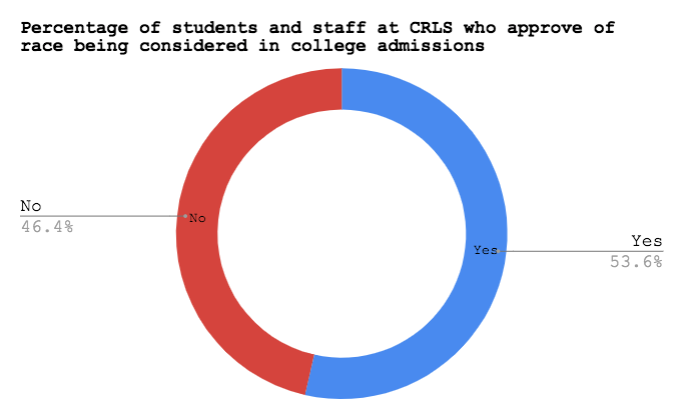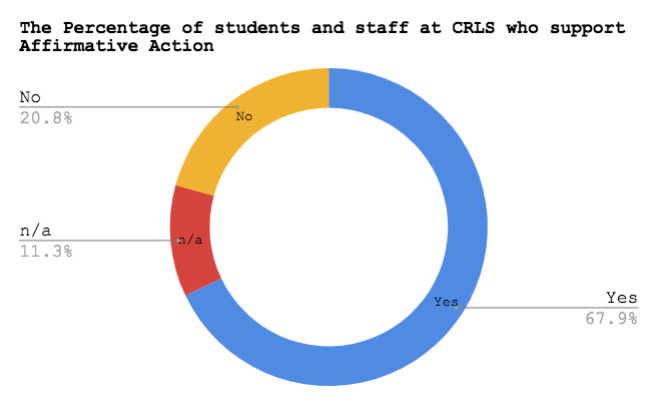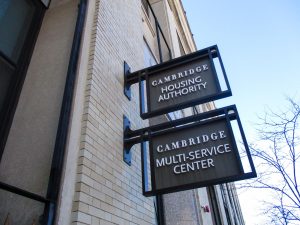Affirmative Action at Harvard: A Boost or Discrimination?
November 29, 2018
On October 15th, 2018 at the John Joseph Moakley district courthouse, attorneys for Harvard and the organization Students for Fair Admissions (SFFA) met in front of Judge Allison D. Burroughs to dispute Harvard’s use of race in its admissions process. SFFA, a non-profit founded by Edward Blum, argues against any college admissions policy that takes race into account.
Blum, a conservative civil rights activist, has been instrumental in bringing six cases to the Supreme Court, including Fisher v. University of Texas (2013) and Evenwel v. Abbott (2016). In 2014, Blum filed cases against Harvard and University of North Carolina at Chapel Hill on grounds that race was negatively affecting the admissions rate of White and Asian-American students.
According to The New York Times, Harvard’s “holistic” admission policy has been a model since the 1978 Supreme Court decision in the case Regents of the University of California v. Bakke, which upheld the use of race as one factor among many in the admissions process. Despite this, SFFA has accused Harvard of maintaining a quota for Asian students as well as giving Black and Latinx applicants an unfair boost because of their race.

In a Register Forum survey, 53.6 % of responses approved of the consideration of race in college admissions and 46.4% did not.
Although SFFA is suing Harvard on the grounds of discrimination against Asian-American applicants, not all Asian-Americans are against affirmative action. In actuality, the 2016 Asian-American and Pacific Islander poll found that close to 66% of Asian-Americans are in support of affirmative action. Similarly, 67% of CRLS students and staff polled by The Register Forum are in support of affirmative action.
Senior and President of History Club Neely McKee believes that “race must be a factor in college admissions because having a diverse student body—and thus, a variety of different perspectives represented on campus—is fundamentally important to every student’s education and college experience.”
Surprisingly, many of the students who support the idea of affirmative action do not believe that race should be considered in the college admissions process. While some respondents approve of the idea of affirmative action they do not agree with its practical application within the admissions process.
Some of the respondents believe that all applicants have an equal opportunity to be accepted by colleges based on their work ethic and extracurriculars. They believe that race shouldn’t matter when defining who would be a good fit and who might succeed in a particular college.
Biology teacher Tomika Moody disagrees: “In a perfect world, admissions would be based solely on merit, but that would ignore all the other systemic disadvantages forced upon races that aren’t white. Without race, more admissions committees could pretend that [race] is the problem and ignore issues of equity, access, and other socioeconomic factors.”
Many of the CRLS students and staff polled agree that affirmative action is a way to level the playing field for qualified candidates. On the other hand, the consensus among students who do not believe that race has a place in college admissions is that it gives some applicants an unfair advantage irrespective of that person’s capabilities. Many believe that race is superfluous and is less important than factors such as economic situation and previous education.
SFFA believes that an admission tip, or boost, for African-Americans is a penalty for Asian-American applicants. Economist and University of California Berkeley professor Dr. David Card studied Harvard’s admission processes and testified as an expert witness. Dr. Card found “no negative effect of Asian-American ethnicity” within the admissions process. On page 34 of his rebuttal report, he concluded that there is no “consistent or statistically significant evidence of bias against Asian-American applicants.”
One thing is clear, however: Harvard will not admit an unqualified candidate. In his testimony from the witness stand, Harvard Dean of Admissions William Fitzsimmons repeatedly stated that Harvard considers race as one factor among many in their admissions process and that race never gives enough of a tip to admit an average candidate at the expense of a first-rate one.
This piece also appears in our November 2018 print edition.










